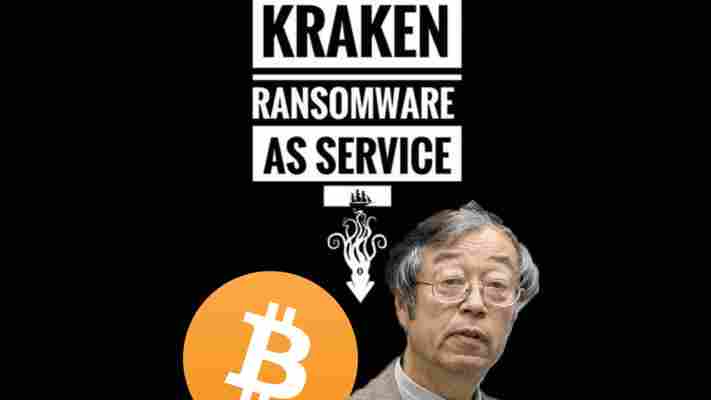Morgan Stanley plans to offer a new way for clients to invest in Bitcoin and potentially benefit from its growth without actually buying any of the cryptocurrency itself.

The US investment bank will offer contracts that are tied to the value fluctuations of the cryptocurrency. This gives clients a form of synthetic exposure to Bitcoin’s performance, an anonymous source close to the matter told Bloomberg .
Morgan Stanley will not trade Bitcoin directly, the source said. The offered contracts are tied to Bitcoin futures contracts; payouts to investors will be made based on increases or decreases in Bitcoin’s price over set future intervals.
The informant further stated that Morgan Stanley is effectively already able to offer these trading contracts. The only holdup is undergoing the institution’s internal approval process.
The source did not state when this approval process would be completed, however.
Even though the SEC is still making its mind up about Bitcoin, the situation has not dissuaded investment banks from finding ways to offer cryptocurrency-related products to investors.
Citigroup devised “Digital Asset Receipts” which allow customers to invest in cryptocurrencies without actually owning them. Meanwhile, Goldman Sachs is still working on its Bitcoin trading platform, which we will get at some unknown point in the future.
Hackers launch cunning affiliate scheme to incentivize Bitcoin ransomware
Researchers have unearthed a new cryptocurrency ransomware scheme that implicates a group of Russian-speaking hackers into stealing large sums of Bitcoin from unsuspecting victims – and laundering the stolen funds on an obscure cryptocurrency gambling site.

The cunning scheme, dubbed Kraken Cryptor (not to be mistaken with popular exchange desk Kraken), was discovered by security experts from Inskit Group and McAfee.
The malicious service was first spotted in the wild in August 2018, but it got the attention of experts after it disguised as legitimate antivirus software and distributed from the compromised website of SuperAntiSpyware. Kraken Cryptor has also previously been linked to the notorious Fallout exploit kit .
The researchers note that – contrary to regular ransomware usually sold on one-time basis – Kraken Cryptor relied on an affiliate program which incentivizes participants to spread the virus by offering them a cut from the Bitcoin ransom payments.
This technique, commonly known as ransomware-as-a-service (RaaS), is especially popular among dark web users . The research notes that Kraken Cryptor affiliate program exclusively uses Bitcoin as ransom currency. The ransom amounts tend to range from around $500 (0.075BTC) to $8,000 (1.25BTC).
The researchers have been able to link back the stolen cryptocurrency to little-known Bitcoin casino, BitcoinPenguin. The experts speculate the hackers have opted for BitcoinPenguin due to its non-existent identity verification procedures, which make it a perfect money-laundering tool .
What’s particularly fascinating is how well-organized the operation appears.
Kraken Cryptor requires all potential affiliate partners to pay $50 per payload and offers no refunds; its program also reserves all rights to reject any member or candidate without any explanation – at any point. In return, affiliates are promised 80 percent of the paid ransom.
While the hackers conducted most of their business on Russian dark web forums, the researchers’ analysis of their nationality is inconclusive at best. The study notes that the hackers spoke Russian and English, but often made mistakes in both; this suggests the attackers were neither English or Russian native speakers.
Interestingly, the hackers forbid affiliate partners from targeting a bunch of countries from the former Soviet bloc; the list includes: Armenia, Azerbaijan, Belarus, Estonia, Georgia, Kyrgyzstan, Kazakhstan, Lithuania, Latvia, Moldova, Russia, Tajikistan, Turkmenistan, Ukraine, and Uzbekistan.
The total amount of funds stolen as a result of Kraken Cryptor remains unclear, but reports suggest cryptocurrency thieves have duped naive users out of nearly $1 billion in 2018 alone.
ShapeShift launches new cryptocurrency tracker (but it’s no CoinMarketCap)
In a blog posted yesterday , ShapeShift announced the relaunch of its cryptocurrency index, CoinCap.io. It’s built on entirely new code, but from a user perspective, it’s pretty much the same system as before – just a bit shinier.

The relaunched CoinCap does host some new features, though. It now includes real-time price updates, a new mobile-friendly design, and everyone’s favorite feature of the day, dark mode.
The real-time price updates are a cool feature, but it’s not perfect. Cryptocurrency tickers flash green for price increases, and red for price decreases – every, damn, second.
The incessant blinking can be turned off, so hopefully it won’t induce too many headaches.
Ignoring the blinking lights it’s a wonderfully simple tool. Top cryptocurrencies are easy to find, all the basic details are there, and it’s easy to dive deeper as your interest gets piqued by a particular coin or token.
But this is where CoinCap starts to fall short.
In terms of the details about individual coins and tokens, CoinCap doesn’t quite measure up to some its competitors.
I found myself going back to CoinMarketCap when I wanted to do a deeper dive on some coins. CoinCap only lists a coin’s website and block explorer. If you want Github, social links, or historical data, you’ll need to go to CoinMarketCap or another source.
While on first glances, CoinCap appears to provide – in my opinion at least – an easy to use quick snap shot of the market it’s undeniable that it does leave me wanting more.
But unlike CoinMarketCap, there are no banner ads. That’s because it’s practically an ad for its creator, ShapeShift.
CoinCap is ShapeShift
Indeed, the CoinCap relaunch comes only weeks after ShapeShift came under fire for enforcing new Know-Your-Customer (KYC) / Anti-Money-Laundering rules on its users.
For some, this (pardon the pun) shift spelled the end of the exchange platform. But it was vital that ShapeShift implement Know-Your-Customer measures to satisfy regulatory pressures. Otherwise it might have been the literal end for the platform (in some territories).
With ShapeShift sailing through rocky seas recently, its priorities must be with regaining trust and interest from potential investors. CoinCap is cool, but it’s unlikely it’ll do much for that.
If you’re interested in everything blockchain, chances are you’ll love Hard Fork Decentralized. Our blockchain and cryptocurrency event is coming up soon – join us to hear from experts about the industry’s future. Ticket sales are now open, check it out!











